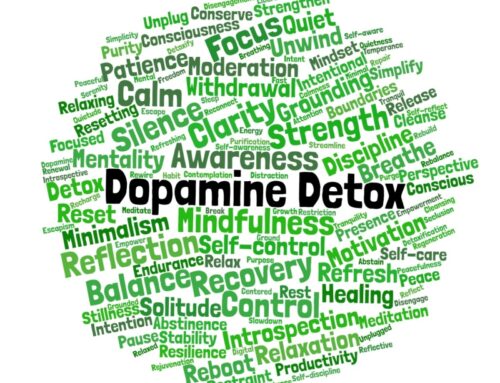When I teach nutrition I’m often asked, “Why do I eat so much?”
Often this question is followed by others:
“If I have so much fat on my body, why would I still be hungry?”
“Why can’t I stop with just one bite?”
“Why do I crave only stuff that is bad for me?”
These are simple questions with a one-word answer: leptin.
Leptin is a hormone that humans have relied upon for millenniums. Leptin sends signals to the brain to regulate what and how much we eat. Leptin tells your brain when you’ve had enough food.
Leptin can also help to regulate what to do with the food you ate. The way your body stores fat is a carefully regulated process that is controlled, primarily, by leptin. If you gain excess weight, the additional fat produces extra leptin that should alert your brain that your body should stop creating and storing more fat and start burning the accumulated excess.
Growing evidence shows that leptin may also influence areas of your brain that control the intensity of your desire to eat. Leptin not only changes brain chemistry, but can “rewire” the very important areas of your brain that control hunger and metabolism.
Leptin’s ability to control the brain is dependent upon the brain “hearing” the message that leptin brings. If your brain fails to receive the message, it thinks you’re starving and you will continue to feel hungry.
In recent years, many people have become unable to “hear” leptin’s message to stop eating because excess sugar calories are stored as leptin-releasing fat, and the resulting chronic elevation in leptin levels eventually leads to leptin resistance.
Excessive sugar in the diet creates chaos to the auto-regulatory systems of the brain that controls everything from feeling full to happiness and sleep. When you eat sugar it triggers the production of your brain’s natural opioids, a key initiator of addiction. Your brain essentially becomes addicted to the sugar-induced opioid release, not entirely unlike addictions to morphine or heroin. The abnormally high stimulation of your brain’s pleasure receptors by a sugar-rich diet generates excessive reward signals in your brain. These have the potential to override normal self-control mechanisms, create tolerance and withdrawal symptoms, thus leading to addiction and overeating.
This then creates the chicken-and-the-egg scenario. You have an addicted brain that wants more sugar, which produces more fat. The greater the fat, the greater the leptin production. With continual leptin production comes leptin resistance, which eliminates the signal to the brain to stop eating. Thus a constant feeling of hunger and a lack of feeling satiated and satisfied after eating, no matter how much fat is sitting on your sides and backside.
Keep an eye on our blog to learn how to break this cycle. Or ask me in the Core Chiropractic office. For even more information and training on breaking this cycle and getting into the best shape of your life, sign up for our LivFit Seminar, which begins January 24. I’m excited to help my Roanoke patients on their way to optimal health and performance through chiropractic, nutrition, and exercise. If you’d like a consultation, call our office any time.





